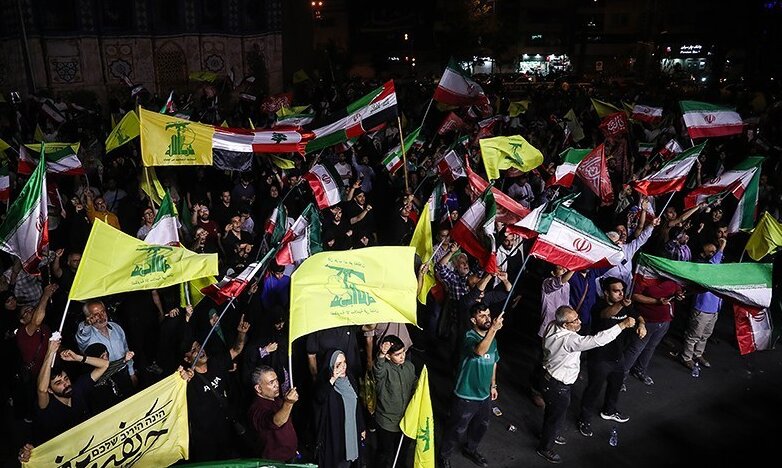A nation grows stronger in adversities

SHANGHAI - The last June witnessed one of the most flagrant aggressions against a sovereign nation state in its modern history and one of the largest military clashes in recent human history. National characters are always manifested in big events, and the following three, together with others, are particularly demonstrated in the 12-day war. A nation facing challenges, difficulties, and adversities could grow even stronger.
The first such character should be the spirit of unity. Iran is a nation with a diversified society, and political debates are a part of everyday life. But history tells that Iran is also a nation with a very strong spirit of unity in the face of external threats. The more serious the aggressions are, the more Iranians will show their spirit of unity.
The 12-day war had well witnessed this very spirit of unity. Shortly after the aggression took place, Supreme Leader Ayatollah Ali Khamenei vowed “severe punishment” for the aggression on June 13. President Pezeshkian called “whatever differences, knots, and problems exist, today we must set them all aside and stand with unity and cohesion against this genocidal criminal aggression with strength”.
Politicians of different government bodies and factions were unified with one voice, resisting the aggression. According to some personal WeChat communication, ordinary Iranians were more than willing to help each other, particularly after Donald Trump threatened unconditional surrender by Iran. Neighbors were more than willing to share with each other food, shelter, and vehicles during some disruptions.
The second such character should be patriotism. The last decades have seen several military conflicts in other parts of the world. It was widely reported that nationals of some countries under aggression would choose to flee their own country for their personal safety. On the contrary, Iranians had demonstrated a totally different story.
An Iranian girl staying in China started her journey back to Iran almost immediately after the war broke out. Knowing that all the airlines had been cancelled, she chose to go first to Lanzhou and then to Urumqi. She believed that Urumqi is closer to Iran, and once she got to Urumqi, she could find ways to go back home to Iran. According to her TikTok bloggings, she finally got back to her home in Tehran via Mashhad shortly after the ceasefire.
On June 18, I was in Turkey for an academic meeting while the war was going on. I was told that while some foreigners were fleeing Iran for Turkey, Iranian nationals in Turkey were leaving for Iran. They just wanted to be part of the national struggle against aggression.
There was another story about an Iranian journalist. Mohsen is working for a Chinese media outlet. Shortly after the war broke out, he sent his family to his hometown near the Caspian Sea and returned to Tehran to be with his colleague. It was because of his work that real news from the Iranian ground had been available for the Chinese audience.
Patriotism is a kind of human emotion and ideology deeply seated in the minds, and is not much visible in everyday life. The shared experience of being attacked had stimulated the emotion. All these stories of ordinary Iranians have well demonstrated the patriotic nature of the Iranian people.
The third should be the character of bravery. When I was visiting Iran in October 2023, a senior Iranian scholar instructed me that a man is defined not merely by appearance or status, but by the embodiment of three essential elements: physical strength, mental fortitude, and spiritual courage. The mentor-like scholar meant that human beings should have the character of bravery in resistance against aggression or any other kind of injustice.
Iran’s struggle in the 12-day war also manifested its national character of bravery. While Donald Trump threatened that Iran would have to surrender unconditionally, the Supreme Leader categorically expressed that Iran will never surrender. Military generals, well aware that they could be new targets of assassinations, showed no hesitation in replenishing the military positions left by those martyred in the assassination. And millions of ordinary Iranians just stayed in their different job positions fearlessly, regardless of the bombings and explosions.
In addition to the above-mentioned characters, Iran’s reaction to the aggression was very impressive, which indicated that Iran’s Islamic system is highly effective and efficient as well. It was on the very day when a dozen Iranian generals were assassinated that the positions left were immediately replaced. And it was also on the very day that Iran had been able to launch its counter-strike against the aggressor. It suggests that Iran’s Islamic system works very well with the loyalty of the political elites.
Just days after the initial shock, Iran regained its footing and launched retaliatory measures in a calculated and disciplined manner, demonstrating the resilience of both the Islamic system and the nation in the face of external aggression.
All in all, Iran could grow stronger after its latest heroic resistance, as the nation has grown more cohesive and the system will be more efficient. The new practice of resistance will add a new part to its statecraft wisdom as a civilizational nation-state. Just as a Chinese saying goes, a nation grows stronger in adversities.
Dr. Jin Liangxiang is a Senior Fellow at the Shanghai Institute for International Studies (SIIS)
Leave a Comment